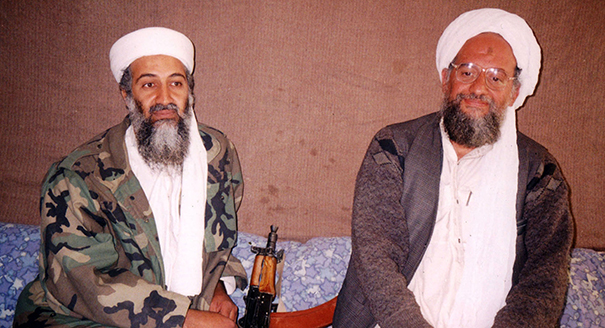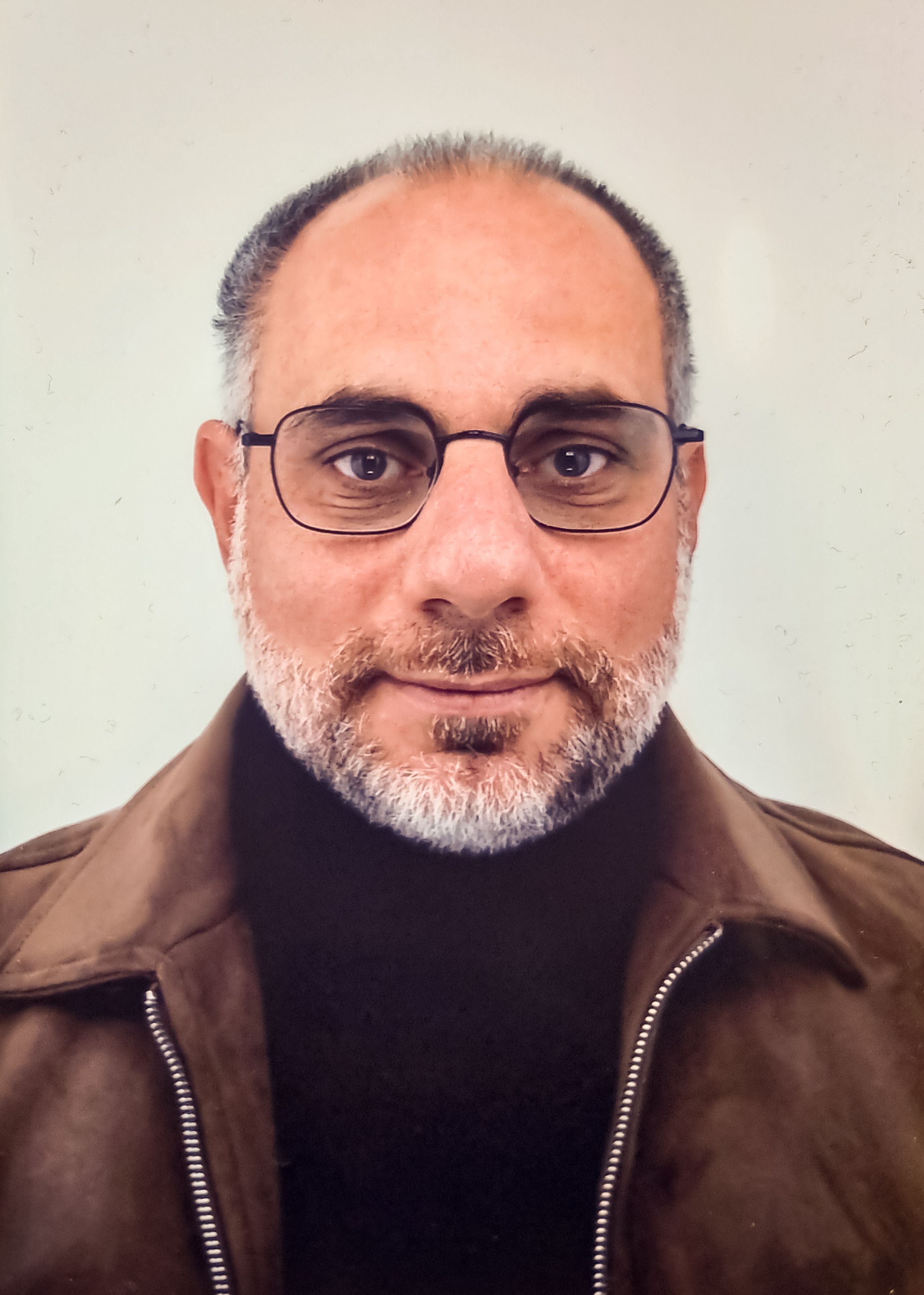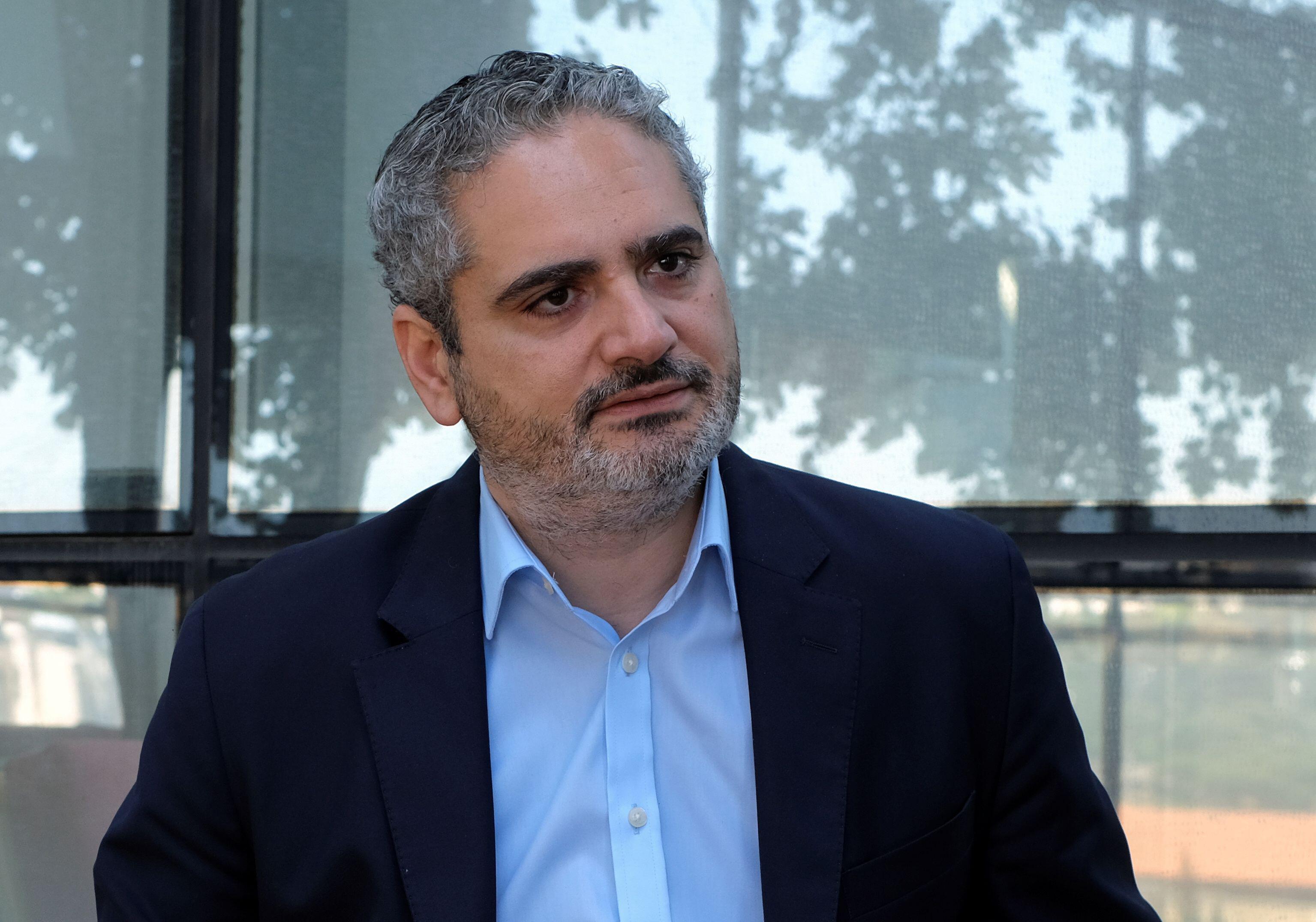The GCC states’ use of Artificial Intelligence will generate much leverage over the global digital infrastructure and climate talks.
Camille Ammoun
{
"authors": [
"Michael Young"
],
"type": "commentary",
"blog": "Diwan",
"centerAffiliationAll": "",
"centers": [
"Carnegie Endowment for International Peace",
"Malcolm H. Kerr Carnegie Middle East Center"
],
"collections": [
"Inquiring Minds"
],
"englishNewsletterAll": "",
"nonEnglishNewsletterAll": "",
"primaryCenter": "Malcolm H. Kerr Carnegie Middle East Center",
"programAffiliation": "",
"programs": [
"Middle East"
],
"projects": [],
"regions": [
"Saudi Arabia",
"Middle East",
"South Asia",
"Pakistan",
"Gulf"
],
"topics": [
"Political Reform"
]
}
A regular survey of experts on matters relating to Middle Eastern and North African politics and security.
Christina Hellmich | Reader in international relations and Middle East studies at the University of Reading, author of Al-Qaeda: From Global Network to Local Franchise (Zed Books, 2011)
Presently making headlines is Hamza bin Laden, one of the younger sons of the late Osama bin Laden. He has allegedly taken over the leadership of Al-Qa‘eda and called on his followers to carry out attacks against the United States and the West in revenge for his father’s killing on May 2, 2011. Inevitably, there is growing concern with an emerging threat, with the U.S. State Department offering a $1 million reward for further information and Saudi Arabia stripping Hamza of his citizenship.
Do we need to be worried? I remain unconvinced. There was a plethora of strongly-worded calls for revenge following Osama bin Laden’s killing, including threats issued by the leaders of Al-Qa‘eda in the Arabian Peninsula, widely seen as the most dangerous and capable branch at that time. And while none of these doomsday scenarios ever materialized, the threats caused widespread concern among security services, commentators, and the public. That is the nature of terrorism in a globalized world.
There is a renewed bias in today’s news headlines toward presenting the image of a united and cohesive Al-Qa‘eda. However, Al-Qa‘eda and its local affiliates were highly fragmented and disagreed over their priorities in terms of ideology and strategy even during Osama bin Laden’s lifetime. His ambition of waging jihad against the United States and its allies in defense of the global Muslim community, or umma, had become increasingly irrelevant even before his death. Hamza bin Laden’s “we are all Osama” may be the genuine desire of a son determined to live up to his late father’s ambitions, but it also comes at a time when a growing number of younger people have no living memory of the godfather of the September 11, 2001 attacks.
Mostafa Zahran | Egyptian researcher of Islamic movements
The recent appearance of Hamza bin Laden was no coincidence. On the contrary it served a purpose, namely to fill the vacuum created by the fall of Abu Bakr al-Baghdadi, the leader of the Islamic State, and his caliphate, as well as the impact of this on the morale of jihadis and its implications for both the East and West.
It was also an attempt to bring Al-Qa‘eda back to the forefront after its retreat following the Arab Spring, the emergence of the Islamic State, and the decision of the leader of Jabhat al-Nusra, Abou Mohammed al-Golani, to split his organization off from Al-Qa‘eda. These developments made it appear that Al-Qa‘eda had collapsed, despite the presence Ayman al-Zawahiri, its leader, who seems unable to pursue the same path as Al-Qa‘eda founder Osama bin Laden.
It is possible that Hamza may come up with ideas that appeal to a new generation, accompanied by an eight-year harvest of jihadism following the Arab uprisings. He will use this as a stepping stone to close jihadi ranks around him, relying on the inspiring legacy of his father among jihadis in the last three decades. The chances that Hamza will achieve this are significant. It may mean his leading the military arm of the organization, while leaving moral and spiritual guidance to Zawahiri, making him appear as a supreme guide who supports the steps of Al-Qa‘eda’s new military commander.
If Hamza achieves such an objective, there will be major dangers on the global scene, especially that his mission would not be confined only to unifying Al-Qa‘eda. It would also mean reuniting those who split off from the organization and those disappointed after the fall of Baghdadi. In addition it will mean attempting to attract hundreds of radical Islamists and others who are languishing in prisons in the Gulf states, Yemen, and North Africa. This allows us to presume that Hamza’s future messages will not be like the ones in the past.
Cathy Scott-Clark | Journalist and author, with Adrian Levy, of The Exile: The Flight of Osama bin Laden (Bloomsbury USA, 2017)
Hamza bin Laden is the only one of Osama bin Laden’s sons to have readily taken up his father’s call to join the jihad, and the only son by Osama’s favorite wife, Khairiah. Hamza, who is 29, was more than happy as a child to dress up in camouflage for the cameras and make speeches renouncing Al-Qa‘eda’s enemies in the West. When Osama once asked his sons if any were willing to become suicide bombers, only Hamza volunteered. Today his siblings, who live in Jeddah and Doha, fear for him. Hiding out in Pakistan with his family, Hamza is firmly under the control of Al-Qa‘eda’s current leader Ayman al-Zawahiri, whom the siblings accuse of treating Hamza “like a puppet.” They want Hamza to come home, which the announcement last week by Washington that it was placing a $1 million bounty on his head has made impossible.
Zawahiri, whose aging, dour demeanor is unappealing to those looking to join a youthful and dynamic movement, fully appreciates that Hamza provides a vital link back to Al-Qa‘eda’s charismatic founder. But in truth Hamza is no jihadi leader. Although he grew up in Al-Qa‘eda training camps, he has never experienced real battle. When he arrived in Pakistan in 2010, having spent the previous nine years living comfortably (albeit under house arrest) in Tehran at the invitation of the Quds Force, a senior Al-Qa‘eda commander who took Hamza under his wing warned Osama not to expect too much of his “very sweet and good” but completely inexperienced son. “Beloved Sheikh, he is a young man who lived many years in prison,” the commander warned. That image of innocence was further reinforced in 2017 when the Central Intelligence Agency released footage of Hamza’s wedding in Iran. It showed a handsome, doe-eyed young man with a wispy moustache covering up nervous, pre-nuptial smiles with his hand.
But the absence of real life experience may not matter in the end. To a younger generation of jihadis watching the death throes of the Islamic State, or who previously rejected that organization’s excessive violence, Hamza’s uncompromising words in recent Al-Qa‘eda videos and audio recordings provided a different rallying cry. His calls for attacks against the West to avenge his father’s death appeal to many looking for a new direction in which to take the jihad. Like Osama, Hamza is becoming a symbolic figurehead. The U.S. government’s decision last week enhances that image. More importantly, that announcement should be taken as strong evidence that the CIA knows that Al-Qa‘eda seeks to take advantage of the vacuum left by the Islamic State and wants to put Zawahiri on notice that it is anticipating his next move.
Paul Cruickshank | Analyst for CNN, editor in chief of CTC Sentinel, the publication of the Combating Terrorism Center at West Point, which published a profile of Hamza bin Laden in September 2017
Hamza bin Laden, the leader in waiting of the terror organization his father founded, has emerged as the key figure in Al-Qa‘eda’s attempt to regenerate itself and reclaim its status as the preeminent global jihadi network now that the fortunes of the Islamic State group are waning. This will ultimately come down to manpower and money. Al-Qa‘eda’s current Egyptian leader Ayman al-Zawahiri is viewed even by jihadis as lacking charisma and has in recent years been eclipsed by Islamic State leader Abu Bakr al-Baghdadi as the standard bearer of global jihad. Unlike the divisive Zawahiri, Osama bin Laden is still almost universally revered in the global jihadi movement, which may enable Hamza, if he takes over, to boost recruitment and persuade deflated Islamic State fighters to switch their allegiance to Al-Qa‘eda. Indeed, Hamza’s hardening rhetoric toward the Shi‘a community may be a calculated bid to do exactly that. And given his willingness to exploit sectarian tensions, his last name, and his Saudi roots, Hamza may be able to significantly increase financial donations to Al-Qa‘eda from wealthy private donors in Gulf countries.
Mohanad Hage Ali | Communications director at the Carnegie Middle East Center in Beirut, author ofNationalism, Transnationalism, and Political Islam: Hizbullah’s Institutional Identity (Palgrave Macmillan, 2017)
Hamza bin Laden has the training, life experience, and indoctrination to assume the leadership of Al-Qa‘eda. He is more charismatic and appealing than the organization’s current leader, the 67-year-old Ayman al-Zawahiri, who failed to relaunch Al-Qa‘eda after Osama bin Laden’s assassination in 2011. One can argue that the two main selling points of Al-Qa‘eda—namely U.S. policy perceived as being hostile to Muslims and the presence of corrupt and repressive Arab regimes—are as present today as during the 1990s, if not more so.
Nearly 30 years old, Hamza bin Laden can speak to angry and disenfranchised youths across the Arab and Islamic worlds, a majority of the population, now living under greater repression and direr economic conditions. The most opportune moment for Hamza’s pitch to revive Al-Qa‘eda might be Jared Kushner’s unveiling of the so-called “deal of the century” after Israel’s elections in early April. That could prove to be a Marie Antoinette moment for U.S. politics in the Middle East, one that provides a spark allowing Al-Qa‘eda to exploit dissatisfaction in the region and recruit new followers.
Carnegie does not take institutional positions on public policy issues; the views represented herein are those of the author(s) and do not necessarily reflect the views of Carnegie, its staff, or its trustees.
The GCC states’ use of Artificial Intelligence will generate much leverage over the global digital infrastructure and climate talks.

Camille Ammoun
In an interview, Shahla al-Kli discusses the country’s parliamentary elections and what they reveal.
Rayyan Al-Shawaf
In an interview, Ibrahim Jalal discusses the Southern Transitional Council’s recent takeover of Hadhramawt and Mahra.

Michael Young
Ankara may seek to annul a maritime deal with Cyprus and expand its influence in the next parliament.

Mohanad Hage Ali
Recent election results have placed Nouri al-Maliki in a strong position to name the next prime minister.
Wladimir van Wilgenburg